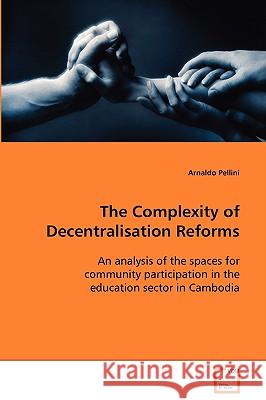The Complexity of Decentralisation Reforms » książka
The Complexity of Decentralisation Reforms
ISBN-13: 9783639084368 / Angielski / Miękka / 2008 / 232 str.
This book analyses the characteristics of community participation in Cambodian rural schools. It looks at the spaces for participation created by the decentralisation reforms that the government of Cambodia has undertaken in the education sector through two main policies: school clustering and Priority Action Programme. While institutionalised spaces of participation created by these policies are relatively new, Cambodian communities, despite twenty five years of political turmoil, have traditionally provided support to schools through school associations. The study refers to bonding, bridging, and institutional social capital to explore, respectively, the characteristics of the horizontal links between community members as well as different forms of collective action, and the vertical links between community, schools and local government institutions. The analysis should be especially useful to academics, researchers, policy makers, and development practitioners involved and interested in the complexity of the link between participation and local governance reforms.











